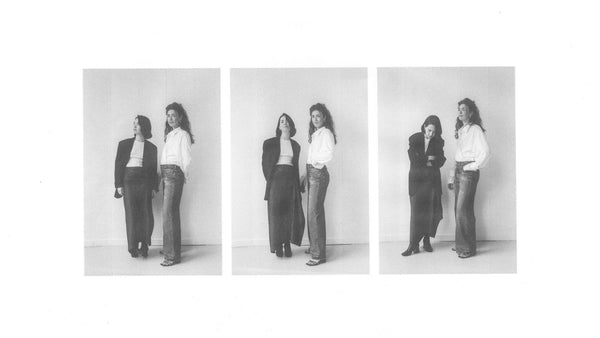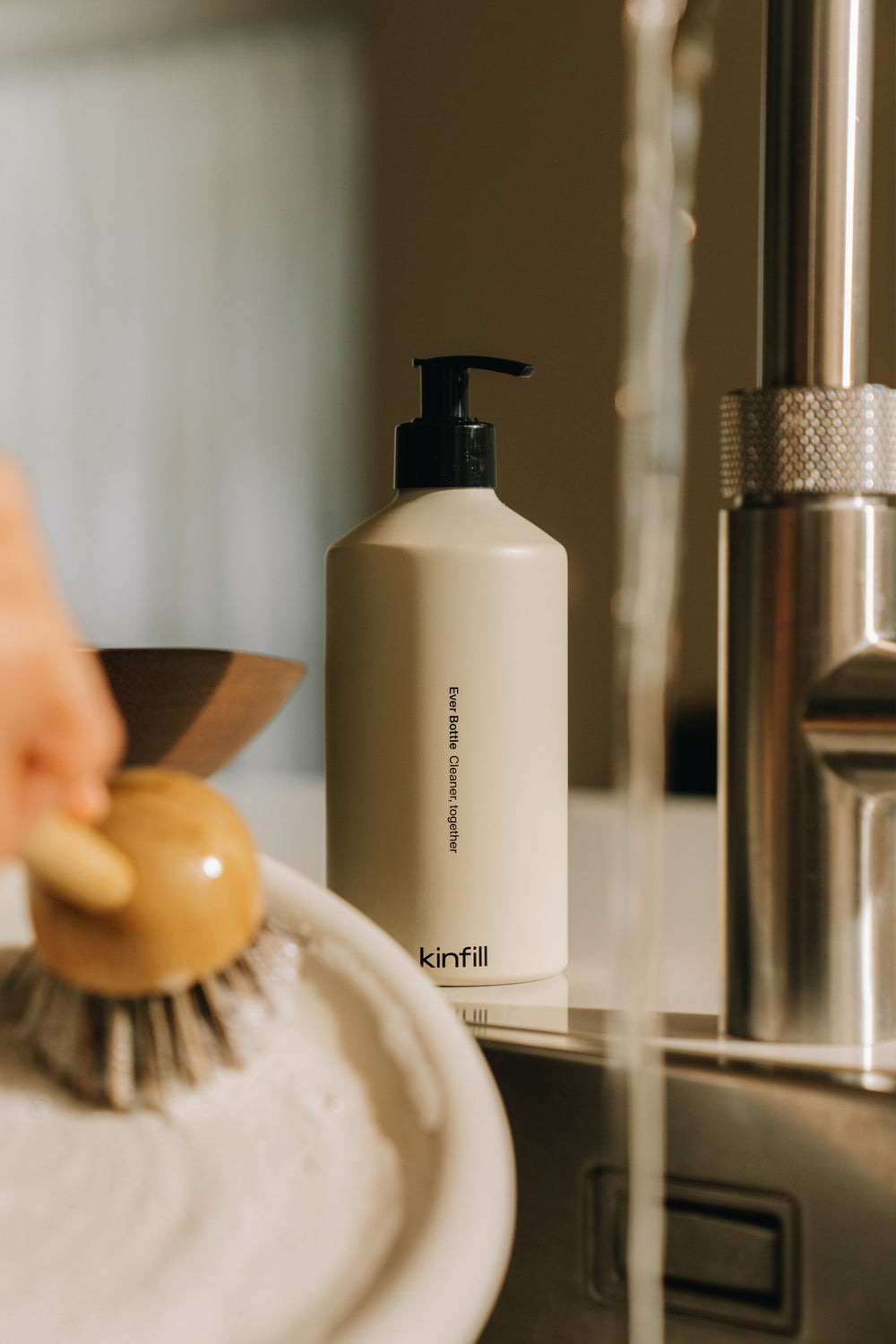
On Common Ground with Madeline St Clair
A marine biologist by training and a force for conservation by instinct. Madeline lives and works in Indonesia, where she’s researching coral reefs, some of the most biodiverse - and threatened - ecosystems on our planet.
Her work sits at the intersection of science, climate, and gender equity. It’s grounded in rigorous field research, local collaboration, and driven by a deep reverence for the ocean.
We joined Madeline for a shoreline clean-up and an open conversation about the health of our seas, the realities of plastic pollution, and what it means to protect the blue planet we all depend on.

What made you first fall in love with the ocean?
I’ve always felt a deep connection with the ocean. I grew up between the countryside and the sea, and I was always curious about what lay beneath the surface. I never imagined I’d become a marine scientist, but life led me in that direction. Today, one of the things I love most about my job is being able to answer the very questions I used to wonder about as a child.
Can you tell us about where your journey began and how you found your way into marine biology?
Believe it or not, I grew up thinking I would become a lawyer. But when I was 16, a major life event made me realise how short life really is. As cliché as it sounds, I knew I needed to do something I loved and something that truly mattered. So I reached deep into myself and pulled out this wild dream of becoming a marine scientist.
I went on to study biosciences at university, and almost immediately I knew coral would be my focus. I’d grown up watching David Attenborough documentaries, especially the ones about coral reefs. Those were always my favourite. Living in England, where the marine environment is so different, it felt surreal to fall in love with something I’d never even seen in person. But now I study coral, one of the most precious and endangered ecosystems on the planet.

Why are coral reefs such a critical focus in marine biology?
Coral reefs cover less than 1% of the Earth’s surface, yet they are among the most vital and biodiverse ecosystems we have. Right now, they are under immense threat from the climate crisis. In fact, reefs are expected to be the first major ecosystem we lose to climate change. By 2050, it’s predicted we will have lost 70 to 90% of coral reefs globally.
We’ve just come through the fourth global mass bleaching event, which has caused widespread loss of coral ecosystems. Reefs support 25% of all marine life at some stage in their lifecycle. The combined effects of climate change, pollution, and declining water quality will have serious consequences for people around the world.
How does pollution, particularly littering, impact coral reefs?
Pollution affects coral reefs in many ways. First, there's water quality. Agricultural runoff, sewage, and other pollutants alter nutrient levels in the water, which in turn make corals more susceptible to bleaching. Bleaching occurs when corals expel the symbiotic algae living in their tissues, turning them white and vulnerable.
Then there’s plastic pollution, which is especially visible. Anyone who’s walked along a beach has seen the extent of it. Plastic now pervades every part of the marine food chain. From nanoplastics and microplastics to larger debris, it’s everywhere. Even corals have been shown to absorb microplastics.
In places like Indonesia, where I work, the problem becomes extreme during monsoon season. Plastics from upstream rivers are swept into the sea and carried into the archipelago. We end up with massive slicks of plastic that stretch for kilometers. It’s heartbreaking to see manta rays and other large marine species feeding in these polluted waters.
What small changes can individuals make to help protect our oceans?
That’s a tough question, because while individual actions matter, systemic change is essential. We need everyone involved: governments, corporations, businesses, and consumers. The plastic problem must be addressed at its source. Cleanups help, but they are not enough if plastic production continues unchecked.
As consumers, we can make more conscious choices. Businesses must invest in circular economies and sustainable production. Governments need to regulate plastic manufacturing, ensuring products are recyclable and that waste is properly managed and disposed of. Without a united approach, we won’t be able to stop this crisis.

What keeps you hopeful when the science feels discouraging?
Honestly, staying hopeful is hard. I witness the death of nature every day, and that’s a heavy burden. Especially this year, following the fourth global bleaching event, I’ve been grieving. I grieve for the reefs where I work, and for ecosystems lost around the world.
There’s a quote that sticks with me: “It’s better to live on your feet than die on your knees.” Maybe I’m not hopeful in the traditional sense anymore, but I refuse to give up. That determination, to keep fighting no matter what, is what keeps me going.
Have you noticed a shift in public awareness around plastic waste?
It’s easy to become desensitised to plastic pollution, especially in Asia where the scale of the crisis is overwhelming. But when someone sees it for the first time, it can be deeply shocking.
Since Blue Planet II, I’ve seen a real shift. There’s been a noticeable rise in consumer awareness and public consciousness around plastics. At the same time, platforms like TikTok have fuelled a resurgence in overconsumption and single-use culture. It's troubling to watch.
We now see a divide: one part of society is becoming more eco-conscious, while another seems indifferent or unaware. Bridging that gap is essential. It will take collaboration from governments, businesses, influencers, and communities to raise awareness and drive meaningful change.

How has living in Indonesia shaped your work, particularly when it comes to local values, community collaboration, and your charity’s mission?
I feel incredibly fortunate to live and work in Indonesia, right in the heart of the Coral Triangle. The community here has a deep connection to the ocean. We’re based within a marine protected area, and the local people are actively engaged in everything from reef restoration to plastic cleanups. They’ve been incredibly welcoming, and what makes the experience even more meaningful is that our research is collaborative from the start.
I'm passionate about moving away from the traditional model of science where researchers collect data, leave, and rarely share results or benefits with the community. Instead, we’ve focused on building genuine partnerships. We’ve trained several local women in scuba diving and marine science, and now they’re directly involved in data collection and conservation efforts. Seeing them take ownership of that work has been one of the most rewarding parts of my career.
This approach is closely connected to Women in Ocean Science, the charity I founded. Through our programs in both Indonesia and the Maldives, we provide training in diving, reef restoration, and practical marine science workshops. Our aim is to empower local women with the skills, tools, and confidence they need to participate in the stewardship of their ocean.
In many small island communities throughout the Indo-Pacific, women often have little say in how their marine resources are managed. We want to change that. By supporting women in these regions to take an active role in ocean conservation, we not only build more resilient ecosystems but also more inclusive and equitable communities.
If you could share one message with the world about our oceans, what would it be?
We are at a tipping point. I don’t say that lightly. There is still time, but not much. This is a moment that demands urgency and action. Even if you don’t live near the ocean or rely on seafood as a primary food source, this crisis affects you. We are all people of this planet, and we all have a responsibility to care for it.
Now more than ever, we must use our voices, make informed choices, and act for the ocean that sustains us all.













